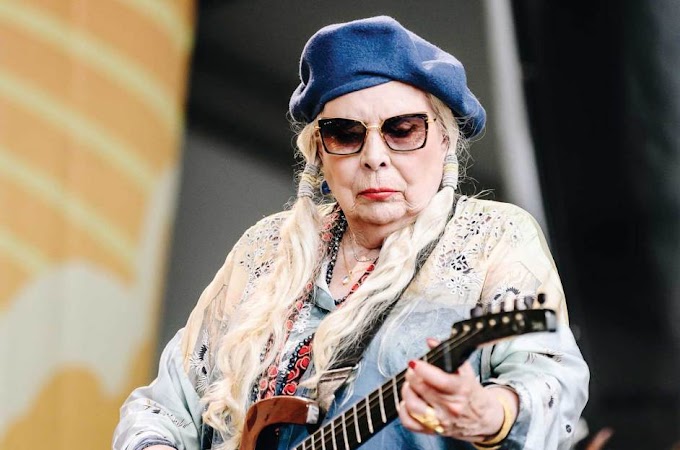© Soledad Toledo 2025
There’s a softness in the way Soledad Toledo speaks, but underneath it, there’s steel. She talks about music not as a career, but as a calling — something that existed before she had the words for it. “There was never a moment of realization,” she says. “It was always there. I didn’t choose music; it chose me.” And perhaps that inevitability explains how a girl from northern Argentina, who once danced to the folk rhythms of her hometown, found herself composing for Netflix and collaborating with artists across continents.
Sol — as she prefers to be known — carries her past like a melody that never fades. Her parents were dancers of Argentine folklore, the cultural heartbeat of their community. “They sent me to dance classes for eight or nine years,” she recalls. “But what moved me most wasn’t the dance — it was the sound behind it.” At twelve, she picked up a guitar. By thirteen, she was taking piano and vocal lessons. By fifteen, she was spending entire afternoons at the local academy, immersed in harmony and form while her classmates were out chasing ordinary teenage distractions. “Music wasn’t an interest,” she says simply. “It was my second language.”
Her teenage soundtrack blended local legends like Mercedes Sosa and Natalia Barrionuevo with indie and global voices such as Bon Iver and Troye Sivan. That mix of soul and sensitivity — tradition and transcendence — would later become her signature. “The folklore is still in me,” she says. “It’s in the way I feel rhythm, in the way I write melodies. Even when I make something modern, it’s built on what I grew up with.”
After earning her first degree in Composition, Arrangement, and Production in Córdoba, Sol’s journey took an unexpected turn that would change her life. A one-week workshop in Chile introduced her to Berklee College of Music. “I’d never even heard of Berklee before,” she laughs. “I auditioned because I had nothing to lose.” To her surprise, she was offered a scholarship. “My parents pushed me to go — they’re the reason I made it. Everything I am today is because of them.”
At Berklee, she majored in Film and Media Scoring, graduating in 2023. The experience, she says, was transformative. “Berklee didn’t just teach me music. It taught me how to be a professional — how to collaborate, how to present myself, how to manage time and sell my art. I learned the craft, but also the business.”
Her first big test came sooner than expected. During the pandemic, she was hired to score Virgilio, a Netflix Latin America documentary on acclaimed Peruvian chef Virgilio Martínez, directed by Alfred Oliveri. “I composed more than thirty minutes of original music,” she says. “It was the first time I truly understood what it means to build emotion through sound.” Her score — a graceful blend of Andean roots and modern cinematic textures — became the heartbeat of the film, reflecting both cultural depth and contemporary vision. The project went on to receive recognition at the 2024 New York Festivals TV & Film Awards.
From there, her work evolved fast. She co-scored short films like Devoted, a tender exploration of love and loss, and Subsequent To, a surreal story now running through international festivals. Her growing interest in animation gave her another creative playground. “Animation is more open,” she says. “The sound can guide the picture as much as the picture guides the sound. That’s what I love about it — the collaboration feels alive.”
Outside the screen, Toledo has built an intimate catalog of songs that reveal a different kind of storytelling — raw, personal, and sometimes painfully honest. Sempiterno, produced with Vikrum Goel, aches with longing; Taza de Té, a collaboration with guitarist Nelson Scalici, confronts the silence around sexual assault; Hija de Saturno speaks of karma and grace, and Born With It takes aim at the invisible currency of beauty and privilege in entertainment. Her most vulnerable songs, Súplica and Días, explore the darkness of depression with unflinching clarity. “Those are the hardest things I’ve ever written,” she admits. “But they helped me heal. That’s why I want to record them in English — so more people can feel less alone.”
In Los Angeles, her creative world expanded further. At the Los Angeles Film Conducting Intensive (LAFCI), under conductor Angel Vélez, she became a key force behind the scenes — managing music libraries, preparing click tracks, and helping international musicians experience the magic of recording at Warner Bros. Studios. She now collaborates with Suzanne Lloyd of Harold Lloyd Entertainment, reaching out to orchestras across the U.S. to revive silent-era classics with live scores. “It’s incredible,” she says. “To see people breathe new life into old art — it reminds me why I love what I do.”
Despite her growing list of credits, Sol’s compass remains firmly set on authenticity. “Sometimes people ask if I’ll ever stop writing in Spanish,” she says. “But my roots are not something I can remove. Even when I write in English, the rhythm of Argentina is there. It’s who I am.”
As 2025 unfolds, Toledo is balancing multiple film projects with new music releases. “The melodies are done, the lyrics are done,” she says. “Now I’m just finishing production. I want each song to carry something real.” Whether those songs arrive as standalone singles or part of a full EP, they represent a new chapter for an artist coming fully into her own — a merging of folklore and future, memory and momentum.
When she speaks to younger artists, her advice feels like a lifeline. “Please, don’t ever give up,” she says. “There will be days when you feel like it’s not worth it. That’s just the day you rest. Don’t quit — pause. Let it breathe. Come back when your heart is ready. The things made from love always find their way.”
For Soledad Toledo, love has always found its way — through rhythm, through memory, through the quiet fire of a dream that never needed permission to exist.
Originally published on https://www.lifoti.com/














0 Comments